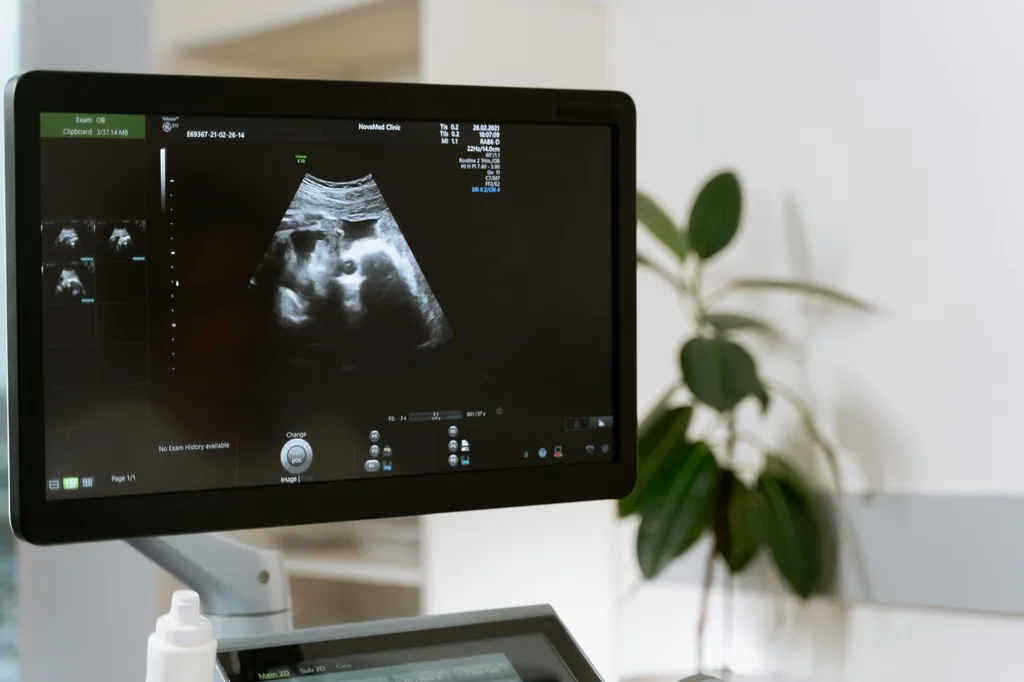Ultrasound Training for Midwives
Midwives have always been a key part of caring for mothers and babies, making sure both stay healthy. As healthcare keeps changing, the tools and skills midwives use need to change too. One big step forward in maternal care is Point-of-Care Ultrasound (POCUS), which is a technology that lets us get immediate pictures for diagnosis. Because POCUS is being used more and more in healthcare, giving ultrasound training for midwives has become super important. It’s all about making sure they have the best tools to do their amazing work.
In this article, we will explore the numerous benefits of point-of-care ultrasound training for midwives and how it enhances maternal and fetal care.

What is Point of Care Ultrasound (POCUS)?
Point of Care Ultrasound (POCUS) refers to the use of portable ultrasound devices at the patient’s bedside or in clinical settings to assess, diagnose, and monitor various health conditions. Unlike traditional ultrasound machines, which are often large and stationed in dedicated imaging departments, POCUS devices are compact, mobile, and user-friendly. They provide real-time imaging, allowing healthcare providers to make rapid and informed decisions.
Ultrasound training for midwives provides amazing abilities right at the point of care. They can use POCUS (Point of Care Ultrasound) to check the baby’s position, keep an eye on the placenta, listen for the baby’s heart activity, and even quickly evaluate if the mother is bleeding too much. This immediate information means midwives can step in quickly and make vital decisions in all sorts of different situations, leading to safer outcomes for both mom and baby.
1. Enhanced Diagnostic Capability
One of the most notable benefits of ultrasound training for midwives is the enhanced diagnostic capability it provides. With POCUS, midwives can quickly assess the condition of the fetus and the mother without the need to refer to external imaging services. This is particularly useful in rural or underserved areas, where access to advanced medical facilities might be limited.
For example, midwives trained in POCUS can check for issues such as:
- Fetal malposition (breech presentation)
- Multiple pregnancies
- Placental abnormalities
- Fetal heart rate monitoring
- Amniotic fluid levels
By having the ability to diagnose these issues immediately, midwives can take the necessary actions, reducing the risk of complications during pregnancy and delivery.
2. Improved Maternal and Fetal Outcomes
POCUS training directly correlates with improved maternal and fetal outcomes. Early detection of potential complications can significantly reduce the risks associated with childbirth. When midwives have access to real-time imaging, they can provide more accurate assessments of the mother’s and baby’s health, enabling them to make quicker and more precise clinical decisions.
For instance, detecting conditions like placenta previa or a breech fetus earlier in the pregnancy can allow for better preparation and timely interventions, preventing complications during labor. Studies have shown that the use of POCUS in maternal care settings contributes to reduced rates of cesarean sections, preterm deliveries, and neonatal intensive care admissions.
3. Increased Confidence and Competency
Ultrasound training for midwives makes a huge difference in how confident and capable they feel, especially when dealing with tricky situations. When midwives can actually see what’s happening inside with POCUS (Point of Care Ultrasound), it confirms their instincts and gives them, and the patient, a lot of peace of mind. This extra boost in confidence can lead to quicker, more decisive actions when every second counts in birth care, which is incredibly important for everyone’s safety.
When midwives are confident in their use of POCUS, they are more likely to embrace its potential and incorporate it into their routine practice. This results in faster, more accurate decision-making and improved patient care.
4. Reduction in Unnecessary Referrals
A significant advantage of ultrasound training for midwives is the reduction in unnecessary referrals to specialists or imaging departments. Often, pregnant women are referred to external imaging centers for routine assessments that could be handled on-site with a portable ultrasound device. These referrals not only cause delays in care but also add to the financial burden on the healthcare system and the patient.
Midwives trained in POCUS can handle a broader range of diagnostic procedures themselves, reducing the need for outside referrals. This means faster care, lower costs, and a more streamlined experience for the patient.
5. Cost-Effectiveness
From a healthcare system’s point of view, Ultrasound training for midwives is a really smart and cost-effective choice. By giving midwives these ultrasound skills, healthcare providers can actually lower the need for more expensive diagnostic services, like sending everyone to a full radiology department. This means we can still keep a high standard of care, but do it in a way that’s much more efficient and saves money for the whole system.
Additionally, early detection of pregnancy-related complications through POCUS can prevent more severe health issues later on, potentially avoiding costly emergency interventions and prolonged hospital stays. This makes POCUS training not just a valuable clinical tool, but a financially sound investment in maternal healthcare.
6. Increased Access to Care in Remote Areas
Access to healthcare is often a challenge in rural or remote areas. In these regions, specialist services such as advanced obstetric ultrasound are often limited or entirely unavailable. POCUS training for midwives bridges this gap by allowing them to provide essential imaging services without the need for large, immobile ultrasound machines.
In underserved communities, midwives are often the first—and sometimes the only—line of healthcare for pregnant women. By equipping these midwives with POCUS skills, healthcare providers can ensure that women in remote areas receive the same high-quality care as those in more urban environments. This not only enhances the quality of care but also helps to reduce disparities in maternal health outcomes between different regions.
7. Better Communication with Obstetricians
Ultrasound training for midwives enables them to communicate more effectively with obstetricians and other healthcare providers. When midwives can provide real-time ultrasound images and accurate assessments, they offer valuable insights that help guide the care plan. This collaborative approach can improve overall patient outcomes.
In cases where a midwife identifies a potential complication, they can relay precise information to an obstetrician, allowing for a faster, more coordinated response. The ability to share imaging findings in real time enhances interdisciplinary communication and ensures that patients receive timely, appropriate care.
8. Improved Patient Trust and Satisfaction
Ultrasound training for midwives builds a strong sense of trust and happiness for patients. Many pregnant women feel so much more at ease when they can actually see real-time images of their baby during their check-ups. Because midwives can explain what they’re seeing as they do the scan, it gives expectant parents a much deeper understanding of their pregnancy and overall health. This direct involvement makes a huge difference in how satisfied and confident patients feel.
The convenience of having ultrasound services available in the same clinic also improves patient satisfaction. Women no longer need to schedule separate appointments at distant imaging centers, which can be time-consuming and stressful. By offering this service on-site, midwives create a more seamless, comfortable experience for expectant mothers.
9. Versatility in Clinical Settings
POCUS is a versatile tool that can be used in a wide range of clinical settings, making it an invaluable asset for midwives. Whether during routine prenatal visits, labor and delivery, or postpartum care, POCUS offers immediate insights that inform clinical decisions.
Ultrasound training for midwives really makes a difference when it comes to assessing a mother’s health. Midwives who have this training can use the technology to quickly check for serious conditions like bleeding (hemorrhage), measure the size of the uterus, and spot any problems after delivery. Because POCUS (Point of Care Ultrasound) is so versatile, midwives can respond much more efficiently to all sorts of maternal health situations. This makes ultrasound an absolutely essential part of providing complete and excellent care during pregnancy and birth.
10. Continuous Skill Development
As midwifery and healthcare continue to advance, so must the skills of midwives. POCUS training represents an opportunity for continuous skill development in the field of maternal care. By staying current with the latest technologies and diagnostic tools, midwives can ensure they provide the highest standard of care possible.
Ongoing ultrasound training for midwives isn’t just about current care; it also opens up exciting opportunities for professional growth and development. This specialized training allows midwives to take on more advanced and impactful roles within healthcare teams. As the use of POCUS (Point of Care Ultrasound) becomes more common across healthcare, midwives who have these valuable skills will naturally be in higher demand. This really highlights why getting this training is so important for their careers and for the future of midwifery.
Conclusion
Ultrasound training for midwives offers a ton of benefits. It really boosts what midwives can do, helping them diagnose things better and leading to healthier moms and babies. This training also means more women in areas without much access to healthcare can get the care they need. By giving midwives the skills to use this powerful ultrasound tool, we can make sure women get quick, top-notch care throughout their pregnancies. Not only does POCUS (Point of Care Ultrasound) help midwives make better decisions and keep patients happier, but it also helps midwives grow professionally and can even lower healthcare costs.
Incorporating POCUS training into midwifery education is not just an investment in technology—it’s an investment in better health outcomes for mothers and babies everywhere.
Hands-on workshops are now available as well as online courses specifically for midwives!!!


